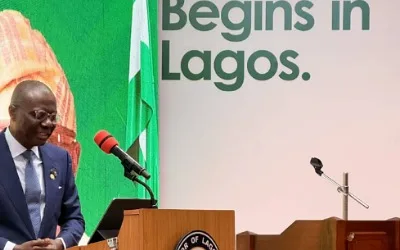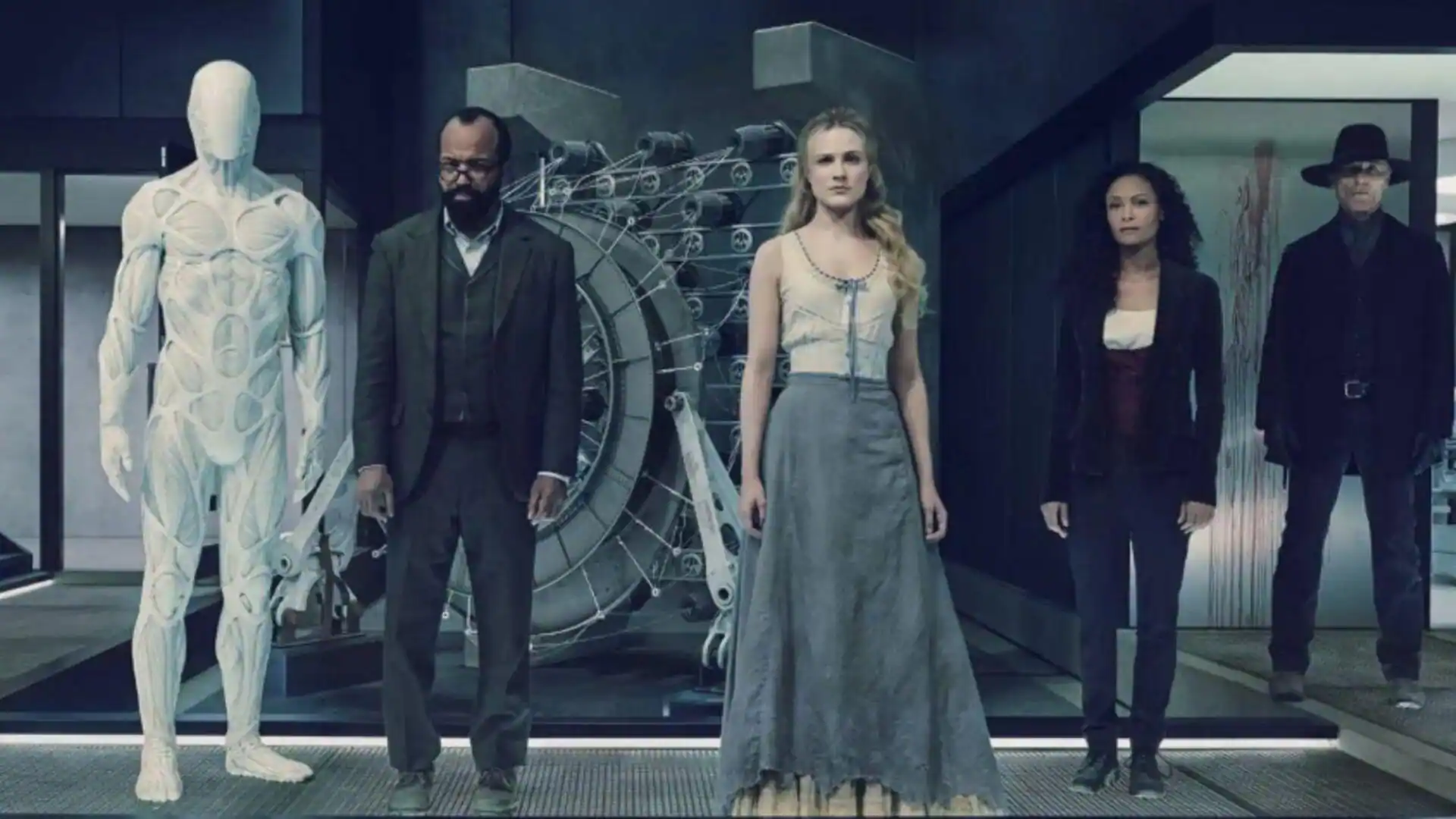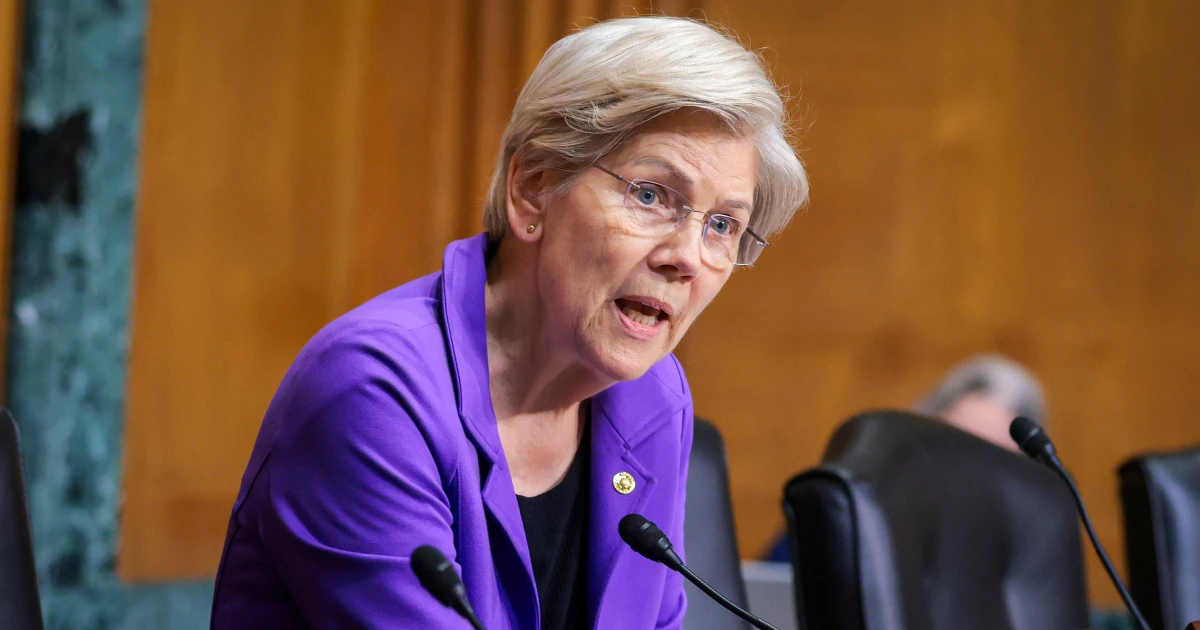By Lukman Olabiyi,Tokunbo2
Copyright thesun

By Lukman Olabiyi
Governor Babajide Olusola Sanwo-Olu has declared that the Lagos State Development Plan 2052 is not merely a state initiative but a strategic national asset that aligns with President Bola Ahmed Tinubu’s vision of building a $1 trillion economy by 2030 and positioning Nigeria as a global power.
Speaking during the First Distinguished Lecture of 2025 hosted by the Nigerian Institute of International Affairs (NIIA) in Lagos, Governor Sanwo-Olu said Lagos has the capacity and vision to drive Nigeria’s transformation into a global economic and geopolitical force in the coming years.
The lecture, themed “Lagos, Nigeria 2030: Projections of a World Power,” marked the first in the NIIA’s series to feature a sitting Lagos governor.
The event drew a high-profile audience of diplomats, scholars, policymakers, and civil society leaders to examine Nigeria’s global trajectory and strategic positioning.
“Our 30-year development plan is anchored on four cardinal pillars: a Thriving Economy, Modern Infrastructure, a Human-Centric City, and Effective Governance.
“It articulates our ambition to become Africa’s Model Mega City and a Global Economic and Financial Hub that is safe, secure, functional, and productive,” Sanwo-Olu stated.
He emphasised that Lagos, as Nigeria’s commercial and innovation hub, is uniquely positioned to drive the actualisation of President Tinubu’s economic vision.
According to him, close collaboration between the federal and subnational governments is essential for sustainable growth.
Sanwo-Olu noted that the Lagos development plan mirrors key national strategies such as Vision 2010, Vision 20:2020, and the Nigeria Agenda 2050, all of which aim to elevate Nigeria into the league of middle-income and global economic powers.
“Lagos’ development agenda aligns seamlessly with national goals, providing a model for transformative governance, innovation, and competitiveness,” he said.
Reaffirming President Tinubu’s economic targets, the governor outlined three major goals by 2030: growing Nigeria’s economy to $1 trillion; ending gas flaring in line with the Paris Climate Agreement; generating one-third of electricity from renewable energy sources.
Sanwo-Olu also redefined what it means to be a global power, moving beyond military might to include economic strength, diplomacy, technology, cultural influence, and resource abundance.
“Global power today is multidimensional; it’s about economic capacity, geopolitical relevance, innovation, and the ability to shape global narratives,” he explained.
He stressed that investments in technology, innovation, infrastructure, and human capital will be decisive in determining Nigeria’s future on the world stage, adding that the UN’s Sustainable Development Goals (SDGs), which also target 2030, provide a complementary roadmap for inclusive growth.
“2030 brings to mind the SDGs—seventeen goals designed to transition humanity into a just, equitable, and prosperous world,” he said.
Calling for stronger intergovernmental collaboration, Sanwo-Olu urged that cities like Lagos must lead the charge in crafting and delivering Nigeria’s transformation story.
In his opening remarks, NIIA Director-General, Professor Eghosa Osaghae, described the lecture as historic, not only as the first of the year but the first ever delivered by a sitting Governor of Lagos State.
“There are very few global powers, and Lagos ranks high among them,” said Osaghae, citing Lagos’ population of over 22 million and its commercial dynamism as key indicators of its global standing.
He lauded the city as a melting pot of civilisation and enterprise, asserting: “There are five cities named Lagos in the world, but Nigeria’s Lagos is the flagship in terms of development and potential for global leadership.”
Osaghae highlighted Lagos’ pioneering role in civil society activism, judiciary reforms, and economic leadership, calling it “a model city and a hub for the entire universe of humanities.”
In a major announcement, the Director-General revealed that Governor Sanwo-Olu had agreed to endow a Foreign Policy School at the NIIA.
“Let me gladly inform you that His Excellency, the Governor of Lagos, has accepted our invitation to endow the Nigerian Institute of International Affairs’ new Foreign Policy School,” he said to applause, adding that the institution will be named the H.E. Babajide Sanwo-Olu School of International Affairs.



